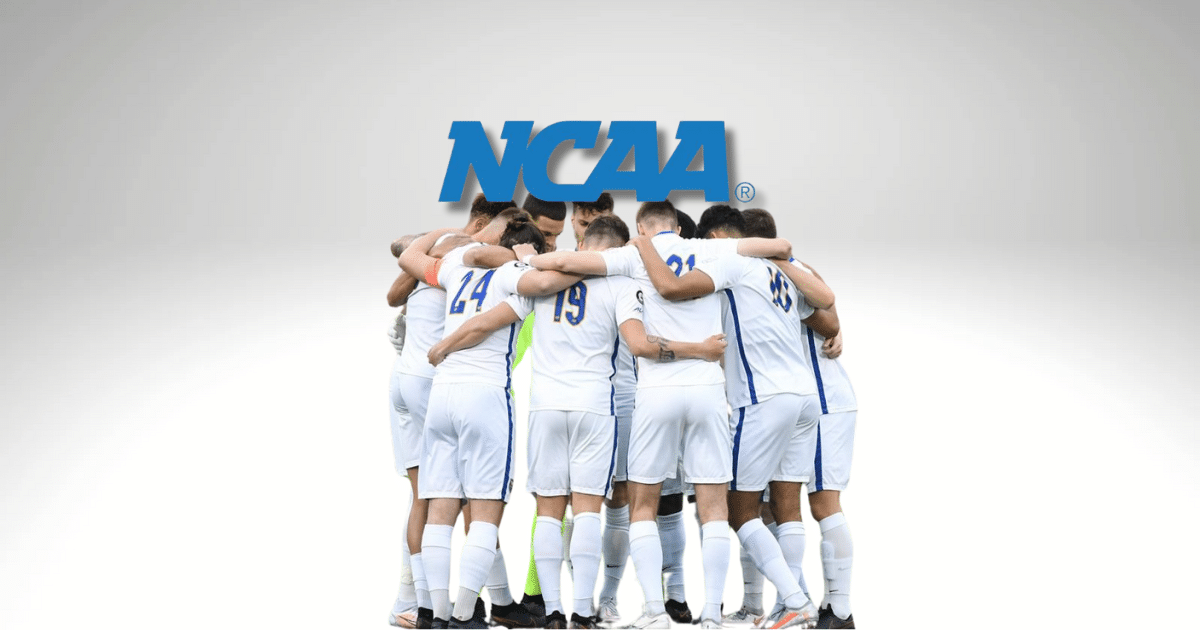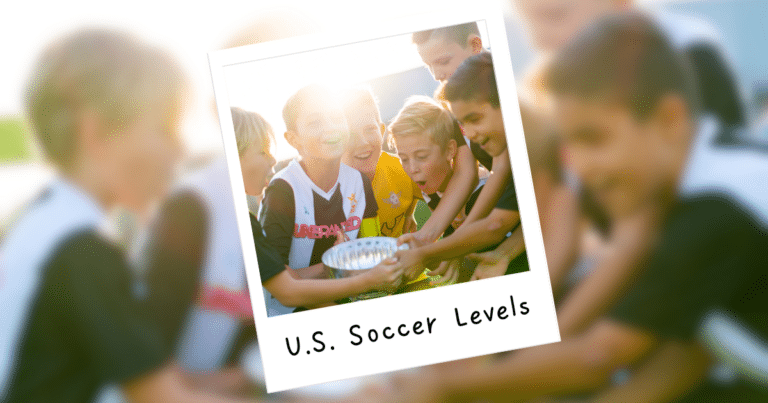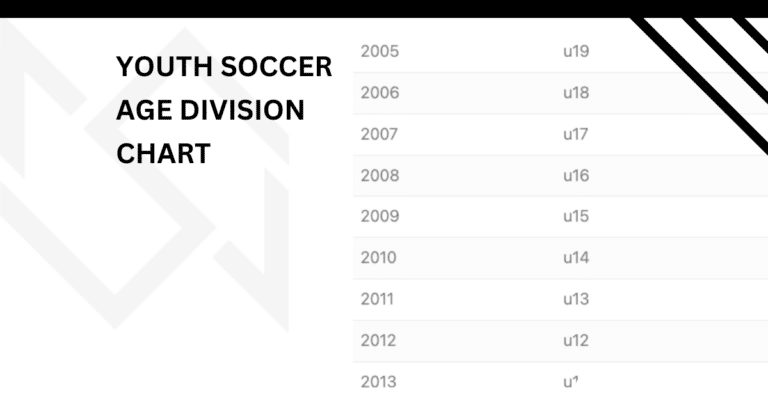What is the Difference Between High School and College Soccer?

Are you thinking about playing college soccer? That’s awesome!
The transition from high school to college soccer can be difficult for many. Remember, a very small percentage of players move on to college ball. This means that the competition gets stiffer.
You will be competing for a roster spot. Then, you’ll have to compete against your opponents.
You’ll have a boatload of schoolwork to do. Try to manage a social life. But, it’s usually worth it.
You’ll gain so much from the experience!
In this article, let’s dig into the difference between high school and college soccer.
Why is College Soccer a Big Step Up?

Transitioning from high school or club soccer to college can shock many players. It sometimes feels like you went from playing against youth players to grown men and women.
Here are some things to know…
How Does the Competition Compare?
The level of competition in college soccer is much higher than in high school. In college, you will be playing against players who are bigger, faster, and stronger.
Just the sheer size alone can be more challenging. There’s a significant difference between a 17 and 22-year-old!
They will also be highly skilled for their position.
You’ll want to get bigger, faster, and stronger yourself. The best time to do this is in each offseason in your high school years. Dedicate yourself to improving your body and skills.
Training and Coaching
College trainings can be more intense than high school.
You will have top-level coaches who will push you to your limits and help you improve your skills. For their own interest, coaches want to succeed to keep their job or get promoted to a higher level school.
College training will typically be more specific to your position. You’ll be able to refine your skills. For example, forwards may spend more time on finishing drills. While midfielders may work more on agility and passing drills.
Depending on what university you attend, you may have more available resources. From training facilities to meals, you’ll have more than enough to keep you in shape.
Game Schedules and Travel
The fall college soccer game schedules can be demanding. For many youth club players, you may be used to it by then.
You will be playing against a variety of teams from different regions. Depending on your league, you may need to travel an hour or four hours.
The biggest challenge here is managing your schoolwork. This should be a priority. I don’t know you but there’s a small chance you go pro. College can be a great stepping stone to your first career.
What Are the Student Athlete Responsibilities?
As a student-athlete, you have a unique set of responsibilities that require you to balance your academics with your athletic commitments.
In this section, I will discuss the responsibilities that come with being an ambitious student-athlete.
Academic Commitments
Academics should be priority numero uno.
You must maintain a certain GPA to remain eligible to play. Falling behind will only cause unnecessary stress on and off the field.
It’s important to communicate with your professors and academic advisors to ensure that you are meeting your academic requirements.
Staying on top of everything is 80% of the battle.
Soccer Commitments
As a student-athlete, you are expected to give 100% to the team in the fall. You’ll need to attend all practices, games, and team meetings.
If you are a college-level player, this will come easier to you. You’ve already proved that you can dedicate yourself to the team and the game of soccer.
Prepare for something (training, workout, or meeting) every day.
Time Management
Time keeps on ticking so managing it effectively can be your secret weapon.
Balancing your academics and athletics can be challenging. This is how you should prioritize your commitments…
- Academics
- Soccer
- Social Life
- Family
- Relaxation and downtime
Why is family #4? They’ll want to visit but this shouldn’t get in the way of your academics and soccer commitments.
Also, in college, your social life is important. It can be a big transition not knowing anyone. By having a crew, you’ll enjoy the experience more.
You may need to make sacrifices and adjust your schedule from time to time.
But with good time management skills, you can succeed both in the classroom and on the field.
Final Thoughts
I’m excited that you are thinking about playing college soccer! There’s a lot that goes into it but it can be an amazing experience.
When all is said and done, you’ll graduate with a degree and create a network that will pay dividends for decades.
Good luck and don’t forget to…enjoy the process 🙂

Written By: Beau Bridges
Beau is the founder of SoccerNovo, dedicated to helping players and parents navigate the youth soccer landscape. As a former youth coach and soccer parent, he shares insights on player development, recruiting, and the ever-evolving soccer scene in the U.S.
Let’s connect





